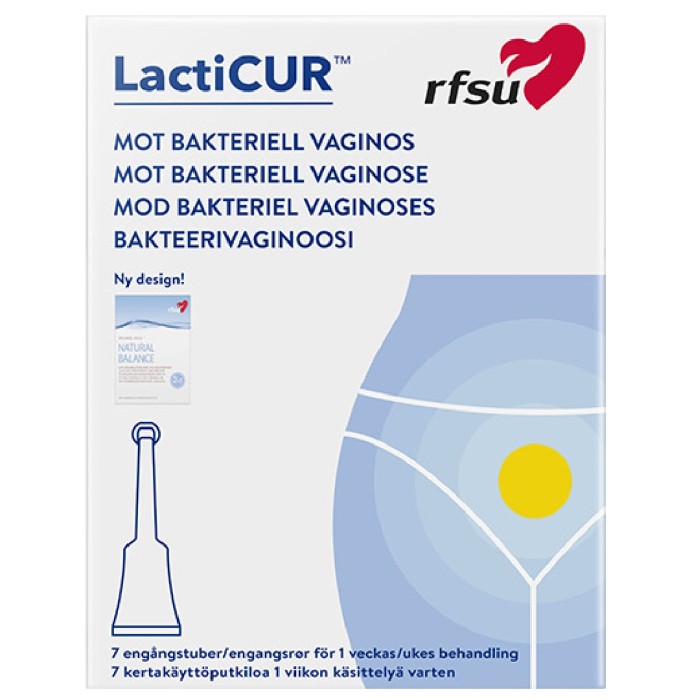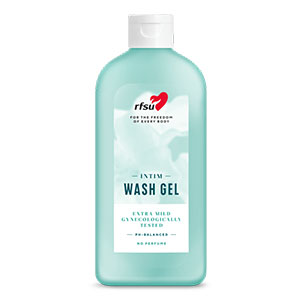
How do you know if you have bacterial vaginosis?
Does your discharge smell bad? It could be bacterial vaginosis. But don’t worry. Everything you need to know about both its causes and treatment can be found here.
Bacterial vaginosis is common and usually completely harmless. But it can still be really irritating. The most common symptom is foul smelling discharge. The smell is due to an imbalance between the bacteria in the vagina, letting the wrong bacteria take over.
Sometimes the balance between the bacteria in the vagina is disturbed. Lina Isaksson, Midwife, RFSU Clinic
“In the vagina, you have an ecosystem of bacteria where the bacterial flora should mainly consist of lactic acid bacteria. Lactic acid bacteria produce a low pH that makes the vagina acidic, meaning that other harmful bacteria can’t thrive. Sometimes though, the balance between the bacteria in the vagina is disturbed so other bacteria can grow. That’s when you get bacterial vaginosis,” says Lina Isaksson, midwife at the RFSU clinic.
Many people experience problems especially after their period and after intercourse, when the environment in the vagina is less acidic. Stress, antibiotics and frequent intercourse can also increase the risk.
Washing too much, especially inside the vagina, can also disturb the bacterial balance and make it easier to get bacterial vaginosis.
Discharge is the most common symptom
The most common symptom of bacterial vaginosis is foul-smelling discharge.
“It can smell bad. The smell can come and go, but it can, for example, smell more after you have had intercourse.
How to know if you have bacterial vaginosis
If you suspect that you have bacterial vaginosis, you should contact a midwife or gynecologist who can make a diagnosis. Among other things, you can have a gynecological examination to find out whether it definitely is bacterial vaginosis that you have.
“During the investigation, we see how the discharge looks. With bacterial vaginosis, it has a special appearance. It is often slightly yellow or grey, runny, and you can see air bubbles on closer examination. We also check the liquid’s pH value and smell, to be able to make a diagnosis,” says Lina Isaksson.
How bacterial vaginosis is treated
Bacterial vaginosis is usually treated with prescription drugs that are inserted into the vagina. They kill the bacteria that should not be there, so that the lactic acid bacteria can recover and the bacterial balance is restored again. “There are also over-the-counter remedies that one can try, even if there is no scientific support that they really work. But some people think they help and use them as a preventive treatment after, menstruation or intercourse, for example,” says Lina Isaksson.
To prevent imbalance in the vagina and add moisture, an intimate cream and a pH-regulating lactic acid rule can also be an alternative. Bacterial vaginosis is rarely dangerous and some people have it without noticing it. But if you suspect that you have it, it is still good to seek care.
“If you’re pregnant, having an abortion, insert an IUD or have another gynecological procedure, bacterial vaginosis can run a higher risk of infection, so it is always good to get a diagnosis and treatment if you suspect that this is what you have.”
How to reduce the risk of bacterial vaginosis
Some people never get bacterial vaginosis, while others have problems with it recurring again and again. You don’t know exactly what causes bacterial vaginosis, but if you want to reduce the risk, there are a few things you can think about.
“Avoid washing too often, once a day is enough. You should also avoid using soap. Ideally, you should only wash with water or possibly with an unscented oil. And don’t wash inside the vagina. The vagina cleans itself and rinsing in water only risks creating an imbalance,” says Lina Isaksson.
If you still want to use a soap, you should choose a specially adapted one and only wash the bottom and the outside of the labia. You can also try not to shave yourself in one go, and avoid panty liners and air, for example, by sleeping without underwear.
“There is no scientific evidence that it works, but for many it helps your genital area feel good.”









